Dyslexia Awareness Month: In Which I Interview My Child with Dyslexia
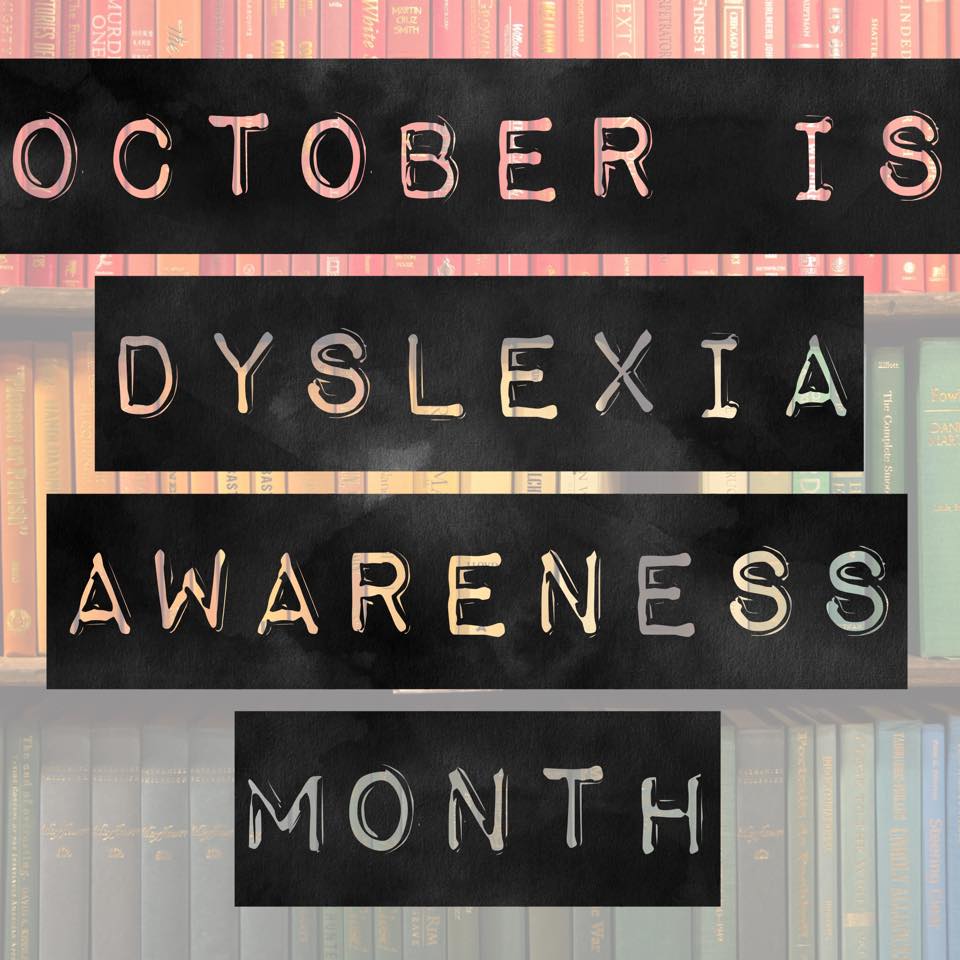
Scout was in Kindergarten when I began to suspect that she had dyslexia. She was outside writing on the sidewalk with chalk and she wrote her sister’s name as a perfect mirror image. It was eerily uncanny how perfectly mirrored it was. In the first grade I noticed that she would read some words backwards. For example, she would read “was” for “saw”. I also noticed she would skip lines or paragraphs but at the time I didn’t realize that this was also dyslexia.
One day, my Dad was visiting and he saw her write in chalk and looked at me and said, “you should get her tested for dyslexia.” My brother is dyslexic and in hindsight, my father had undiagnosed dyslexia as well. Having my father say this to me confirmed my suspicions and I began the long and often challenging journey to getting a dianosis.
ADVERTISEMENT
ADVERTISEMENT
When the diagnosis finally did come, my daughter was given a 504 plan and put into an intervention program called MTA. I am going to be completely honest and tell you that I just trusted that the school was doing what they needed to do to help her. And let me be very clear here, her MTA teacher was a blessing. Hands down. Scout still tells me how much she loves her and asks me to contact her because she misses her. It was the other teachers that I constantly had to struggle with. And administrators. And homework. And bullying. And self-esteem. And anxiety.
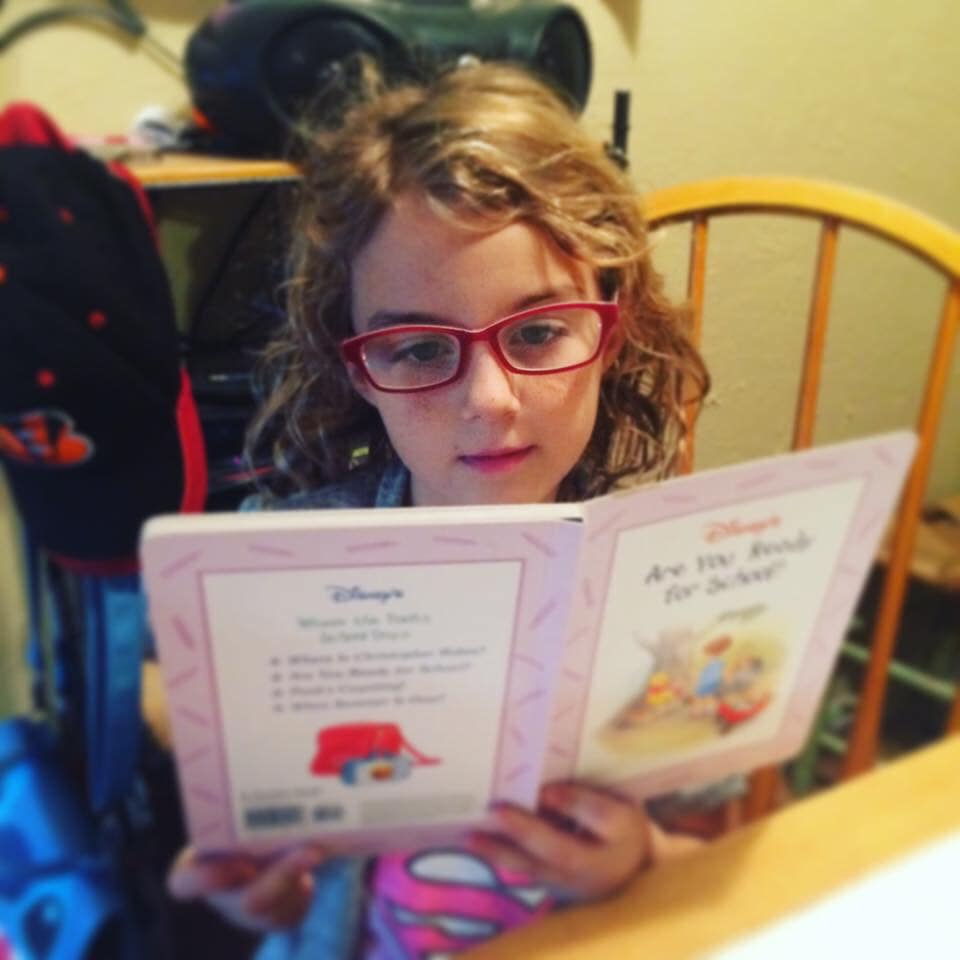
Each new school year became harder and presented new challenges. Scout is now in the 5th grade and next month she will be 11-years-old. It was only last year that she read her first chapter book from cover to cover on her own.
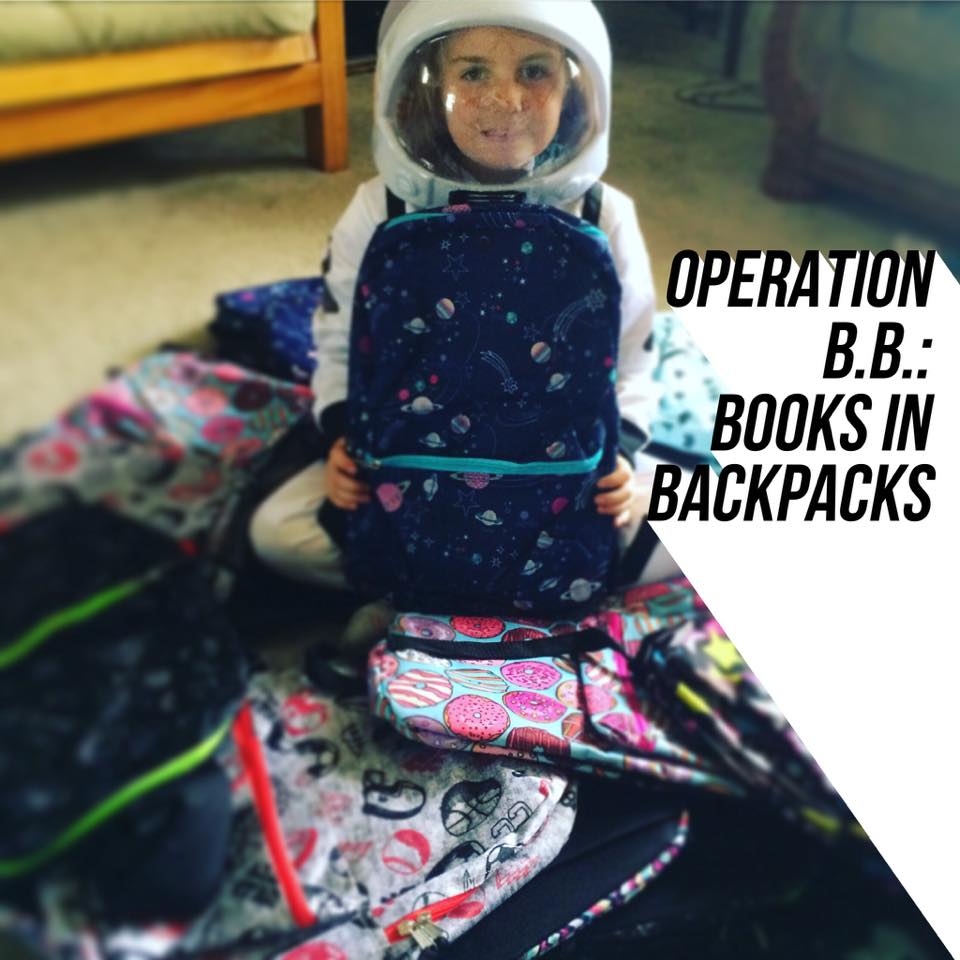
Learn more about Scout’s Operation BB: Books in Backpack here
Last year she also began her own initiative called Operation BB: Books in Backpacks. This was also a turning point for her in being an enthusiastic supporter and champion of books. It was one of the first of many turning points for us last year. But last year was a rocky year when it came to reading because every progress we made, it seemed like there were forces working against us. Strict adherence to the 40 Book Challenge in her class was causing us a lot of set backs when it came to reading. So much so that halfway through the year I said we are not going to do this anymore. You can read about that experience here.
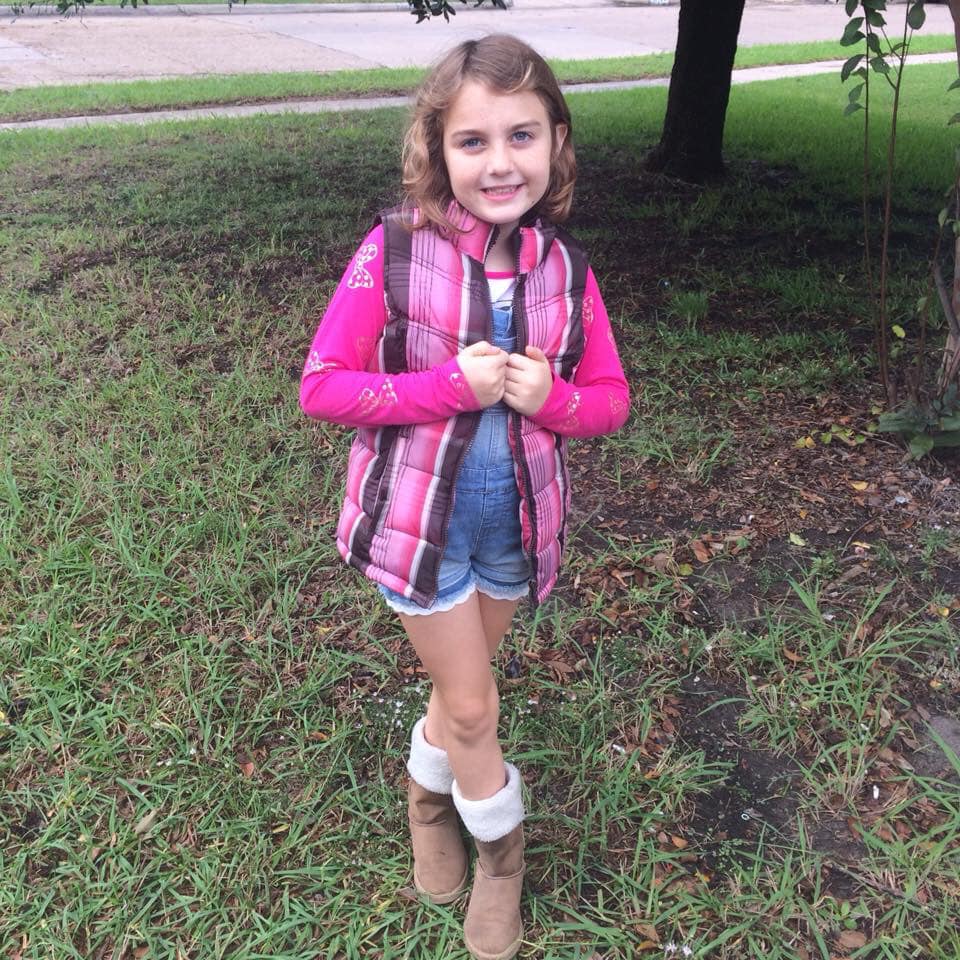
This year as she began a new school – an intermediate school – we had another huge setback. This school was set up so that she would take her intervention as a separate period and would not get to take any of the same electives as her peers, such as art, music, STEM, choir and band. Her entire schedule were intense academics with a lot of reading and writing, which gave her no creative outlet, no period with a moment of relaxation, no period where she could take a brain break and engage in something she both enjoyed and could feel successful at. So I fought long and hard with the school to get this changed. She is now able to be released early from her ELAR class to go to her intervention AND she gets to take the same electives as her peers. This change has been miraculous. She is happier and doing better in school and seems to look forward to going for the first time in all of the six years she has been going to school.
The other thing that has changed in our home is that I have fully committed myself to understanding what dyslexia is, what it’s like for her and how to better help her be the best her she can be. I read about it, I write about it, and I’ve joined parent support groups. We talk about it in our home. When I read about someone she loves being dyslexic, I go home and tell her as an example of someone who is dyslexic but not ashamed and, more importantly, succeeding. She is no longer ashamed of who she is and feels more open to talking about dyslexia. Several times now in the car she has told me about something that she has found challenging and I have been able to go to her teachers and ask them to help me help her succeed.
It’s also made me realize that in our libraries we are not doing enough. We need a wide variety of formats to help our patrons with dyslexia. Like Autism and other spectrum disorders, dyslexia is considered a type of neurodiversity and a spectrum. What works for one of our patrons with dyslexia may not work for another. Some people with dyslexia love audio books, so we need those. Some people like digital books because you can adjust the fonts or backgrounds, so we need those. Some people need large print. Some people prefer graphic novels. Access to a wide variety of resources is one of the best ways that we can help our patrons with dyslexia.
Today I’m going to interview Scout who is going to talk with you about her journey with dyslexia. I am going to ask the questions and just type her responses for you.
What is dyslexia like for you? What happens when you are trying to read or do school work?
I have to slow down so I don’t get things mixed up. I sometimes mix up letters and skip lines. Sometimes it’s hard to read if there is small lettering because it looks blurry and blends together. Sometimes when I read I get headaches or feel tired. Looking at words for a long time is really challenging. Sometimes I just have to take a break and go outside or look at something else.
What helps you be a better reader or do well with your homework?
Going slow and using my decoding skills to make sure that I read something right. Sometimes having someone read something to me helps.
What do you wish people knew or understood about dyslexia?
That it doesn’t make it hard for me to learn; I’m not stupid. It just takes me longer sometimes to do the work.
What was school like for you before you learned you have dyslexia?
It was a lot harder because I didn’t know how to decode then and things were more confusing. I felt overwhelmed because all the words would flow of the page and it was confusing. I felt like I was different from all the other kids and wasn’t learning what I was supposed to. It was scary and I often felt like I was stupid.
What happened when they began testing you for dyslexia?
I felt kind of confused because I didn’t know what it was. And it was overwhelming because I didn’t know why and stuff I was getting tested. They told me I had to read a lot of big sentences and words. It was hard.
How did your life change when they told you that you have dyslexia?
I was scared because I thought I was so different.
How do kids in school treat you when you leave the class for intervention?
People would call me stupid and different. Sometimes they laugh at me because I use the wrong word when I’m talking and I am trying to remember what the right word is. I got really mad because it really upset me. I didn’t like feeling so different and bullied.
What do you do in your intervention?
{Editor’s note: Thing 2 is involved in an intervention program called MTA. You can read about it here.}
We learn to decode words. We also learn to write cursive because it’s easier to read. {Editor’s note: it’s easier for some people with dyslexia to read and write cursive because they don’t have to pick the pen up off of the paper and they are less likely to write a letter backwards is what I was told by the teacher.}
Do you want to talk about how you feel about reading? What happened last year with the 40 Book Challenge? How did it make you feel?
The 40 Book Challenge felt overwhelming because I knew I would have to read books that aren’t in my level and harder. I felt really scared. I cried and fought about doing it because I didn’t want to read. I didn’t want to read because it was too hard.

How do you feel about reading now?
I love reading. I like to read The Black Lagoon books, Here’s Hank, Raina Telgemeier and other graphic novels. The words are more spread out and when they aren’t so close together so it helps me not skip a line or blend the words together. The Here’s Hank books are in a certain font that certain people with dyslexia like and it helps me not blend the words together.
What changed for you about reading? What made you like it?
The Here’s Hank books because I read them and felt like I could. And the books are really funny.
What about listening to audio books?
I don’t really like listening to audio books because I can’t visualize and I can’t see the words. Trying to listen and read at the same time confuses me.
Do you like being read to aloud?
Sometimes, with more advanced books. I like to see the words when I’m being read to. I like hearing a real person’s voice rather than hearing a robot’s voice. And I don’t like reading on the computer because on the computer the words are much closer and it is hard to see them.
So just tell our readers what you want to say about dyslexia:
Always know that you aren’t different or dumb, you can actually be smarter. Just keep trying and you will get there someday.
What do you want your teachers to know?
I want my teachers to learn more about it and how they can help people with dyslexia. Like how using a bigger font size can help. Also slow down when you talk. Explain things well and be patient.
What do you want your parents to know about you and dyslexia?
Just be patient. Slow down when you read to me. And make sure you are explaining yourself well.
What do you want your friends to know about dyslexia?
To not laugh at me whenever I say a word wrong. To be patient and kind.
You’ve spent a lot of time with me in libraries. What do you want libraries to know about dyslexia?
Be sure and help people with dyslexia. Have some books that are dyslexia font. Be patient and explain where the books are so people can find them.
My Top 5 Books or Book Series:
Raina Telgemeier books
Here’s Hank by Henry Winkler and Lin Oliver
The Black Lagoon books by Mike Thayer
The Magic School Bus (chapter books)
Graphic Novels {She named quite a few}
So what do I, Scout’s mom, want you to know about her and dyslexia?
ADVERTISEMENT
ADVERTISEMENT
Scout has dyslexia and she will not outgrow it or be cured from it. She is, however, learning great strategies that are making it easier for her to learn and grow and be her very best. It has been hard trying to navigate the school system and advocate for her. It has been heartbreaking to see her struggle, cry and call herself stupid. I have been devastated by the things people have said about her and done to her.
I think in the beginning I really failed her. I should have learned more, advocated more and fought harder. Whatever special need your child may have, you have to champion your child. Even when it’s hard. They can’t do it for themselves so you have to do the work.
I also want you to know that she is more than dyslexia. She loves space (a lot!), sharks, art, photography and a lot of sports. She plays soccer and basketball. She loves to be outdoors and she has always loved swinging and being in motion. She is very sensitive and has to work harder than anyone I know because the world is very different for her. But man, she’s a great kid.
I want to end this post today by sharing with you a story that I consider a miracle and a blessing. This year Scout’s Girl Scout troop has been working on building, installing and filling Little Free Libraries at all the schools in our town. The other day we went to fill the one at the elementary school that she attended. There were a lot of things she hated about that school and we had a lot of negative experiences there trying to get her diagnosed and helped. But as the girls from her troop went through a box of books and were filling the library, she pulled out a Here’s Hank book and she asked if she could keep it. Her troop leader said sure. Yesterday she opened that book to read it again and when she did, she discovered that it was signed by Henry Winkler and Lin Oliver. I cried as she jumped for joy over her discovery. It truly felt like we had finally come to a good place with reading, with books, and with this school. Her last experience with this school will get to be a positive one, and I am thankful for that.
Filed under: Dyslexia
About Karen Jensen, MLS
Karen Jensen has been a Teen Services Librarian for almost 30 years. She created TLT in 2011 and is the co-editor of The Whole Library Handbook: Teen Services with Heather Booth (ALA Editions, 2014).
ADVERTISEMENT
ADVERTISEMENT
SLJ Blog Network
One Star Review, Guess Who? (#202)
This Q&A is Going Exactly As Planned: A Talk with Tao Nyeu About Her Latest Book
Exclusive: Giant Magical Otters Invade New Hex Vet Graphic Novel | News
Parsing Religion in Public Schools
ADVERTISEMENT


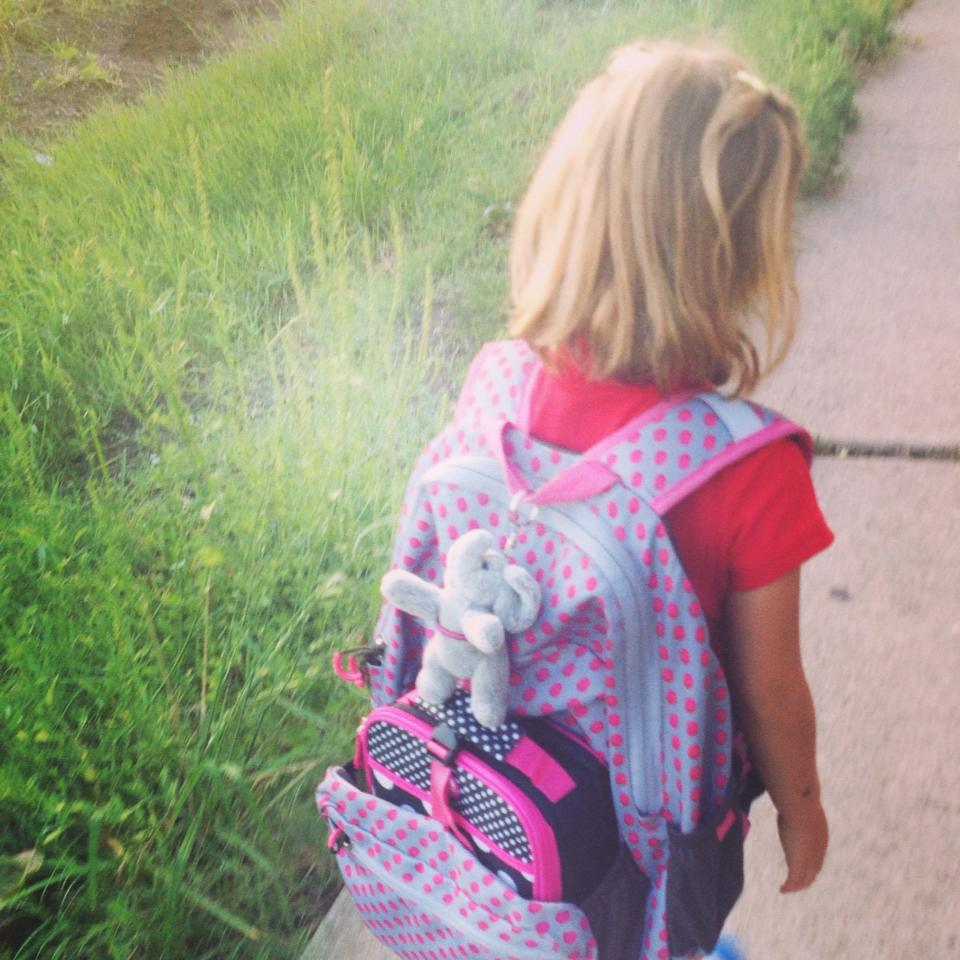
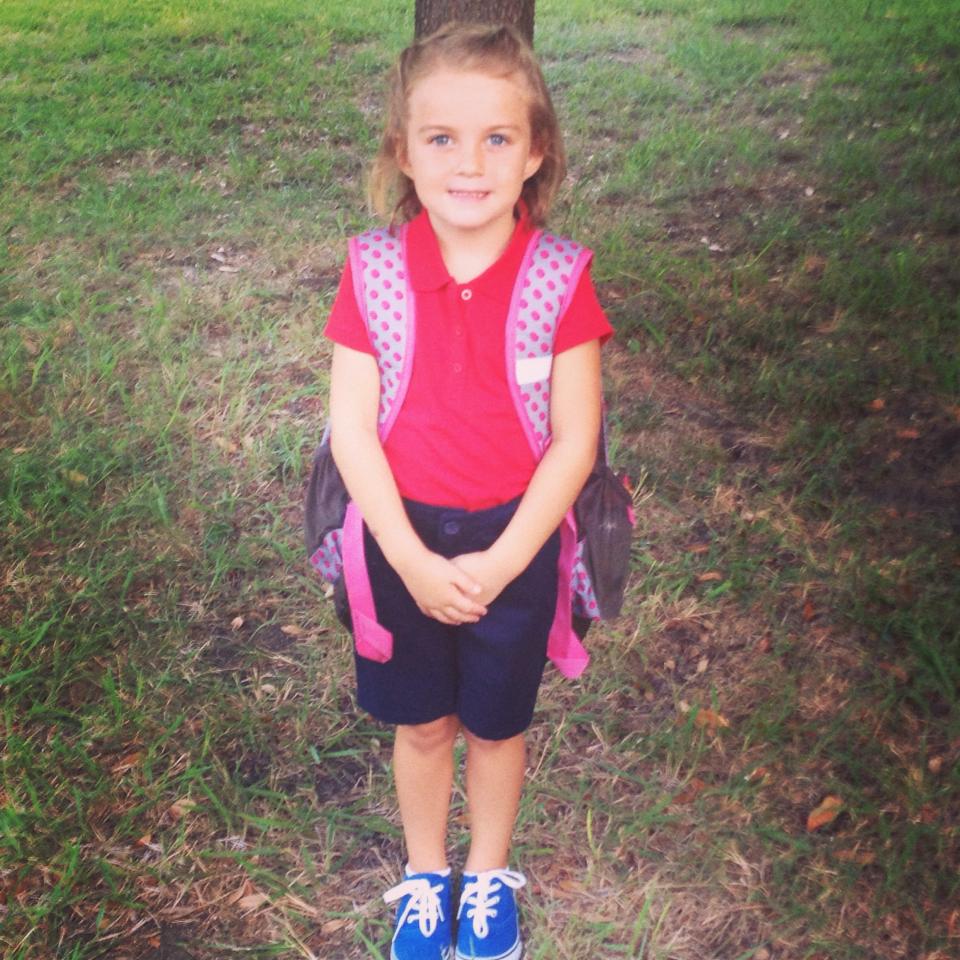
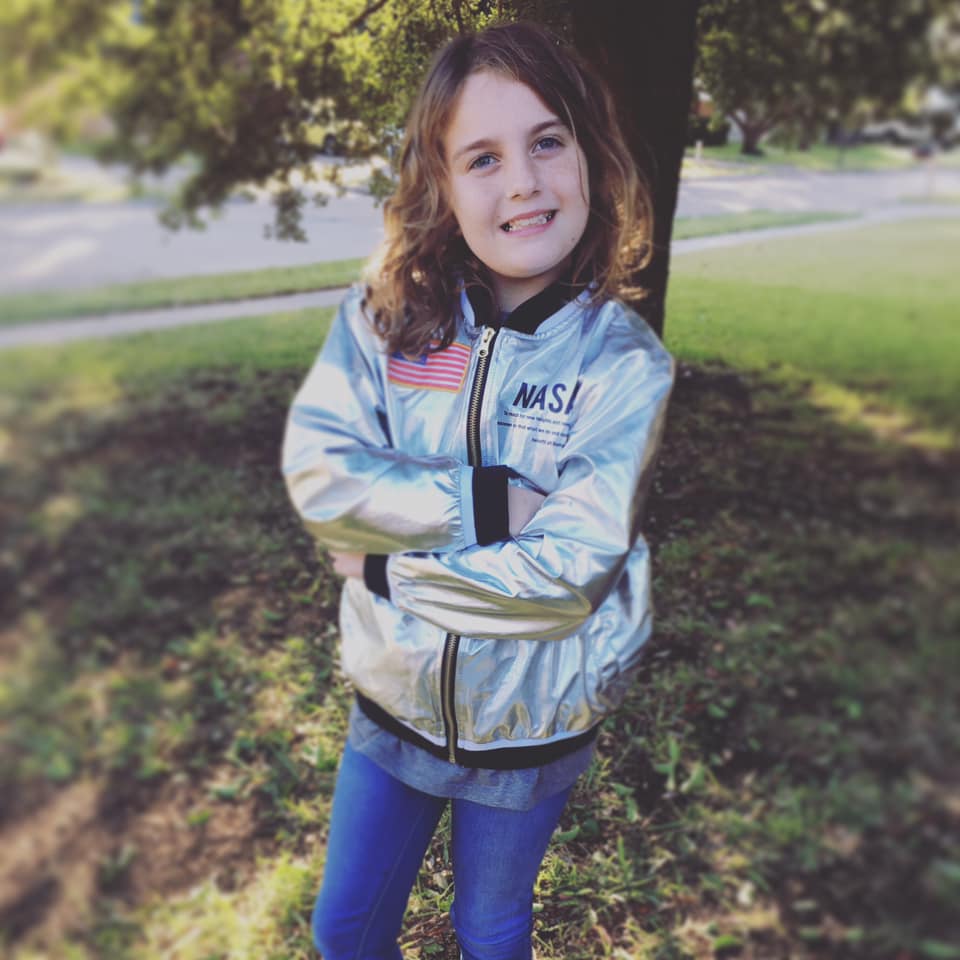
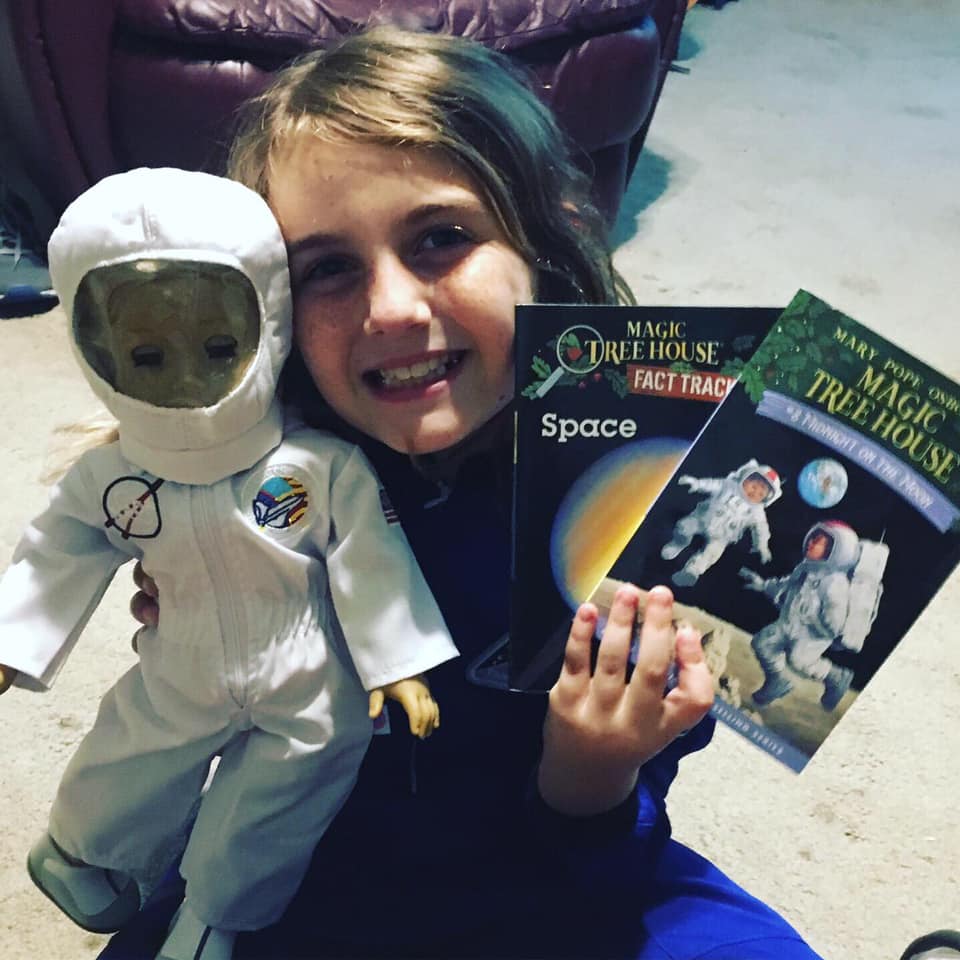
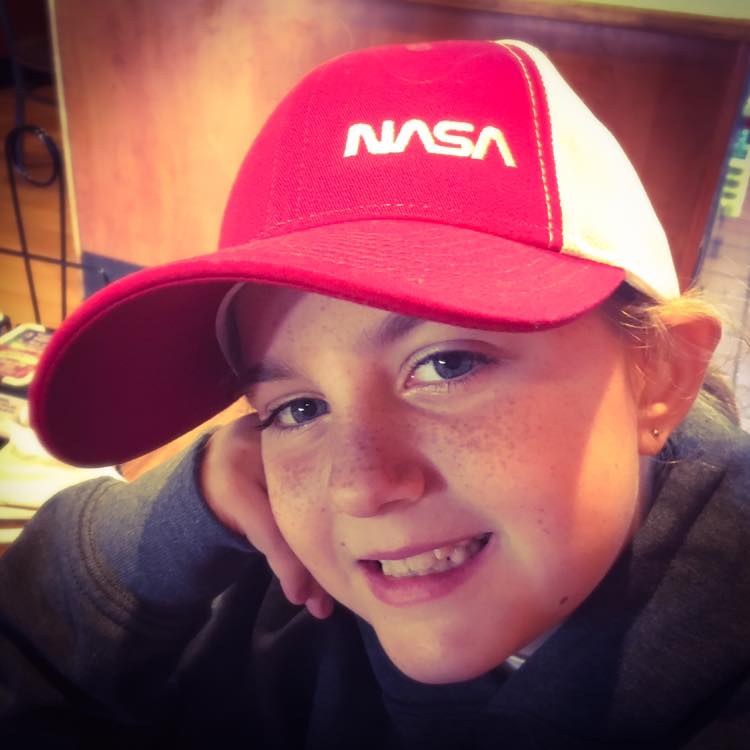
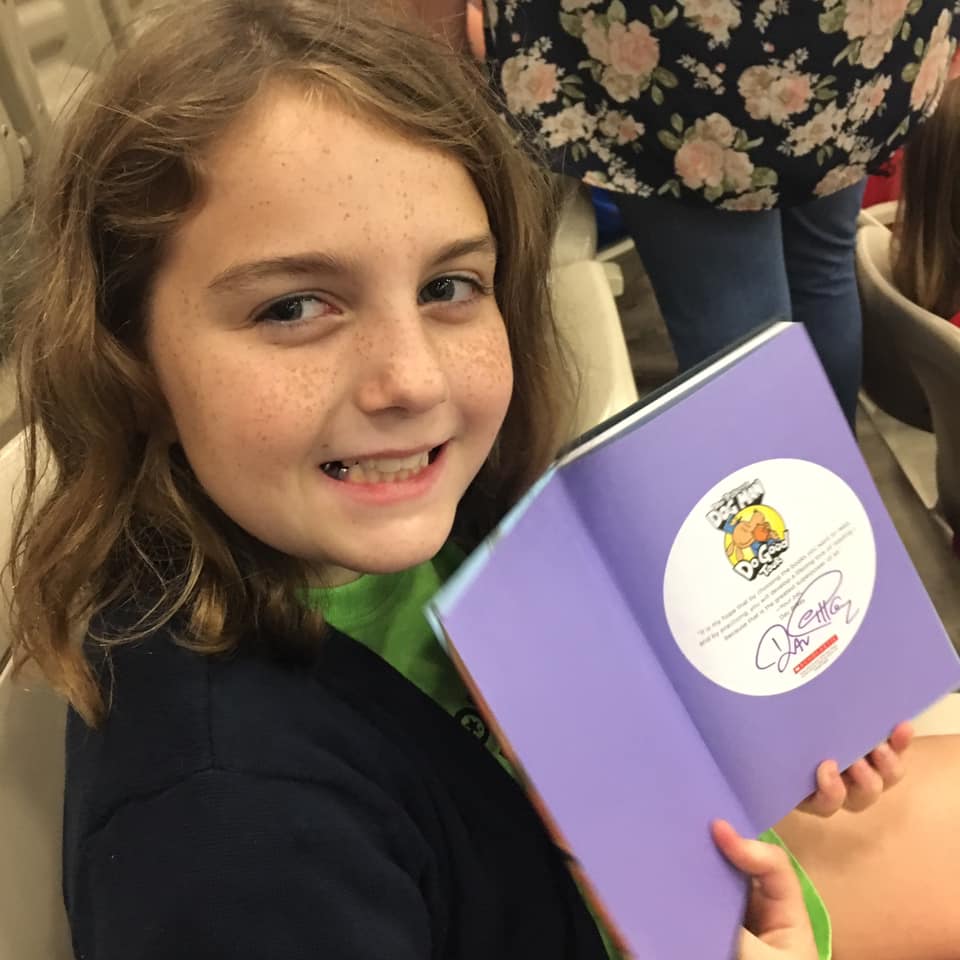
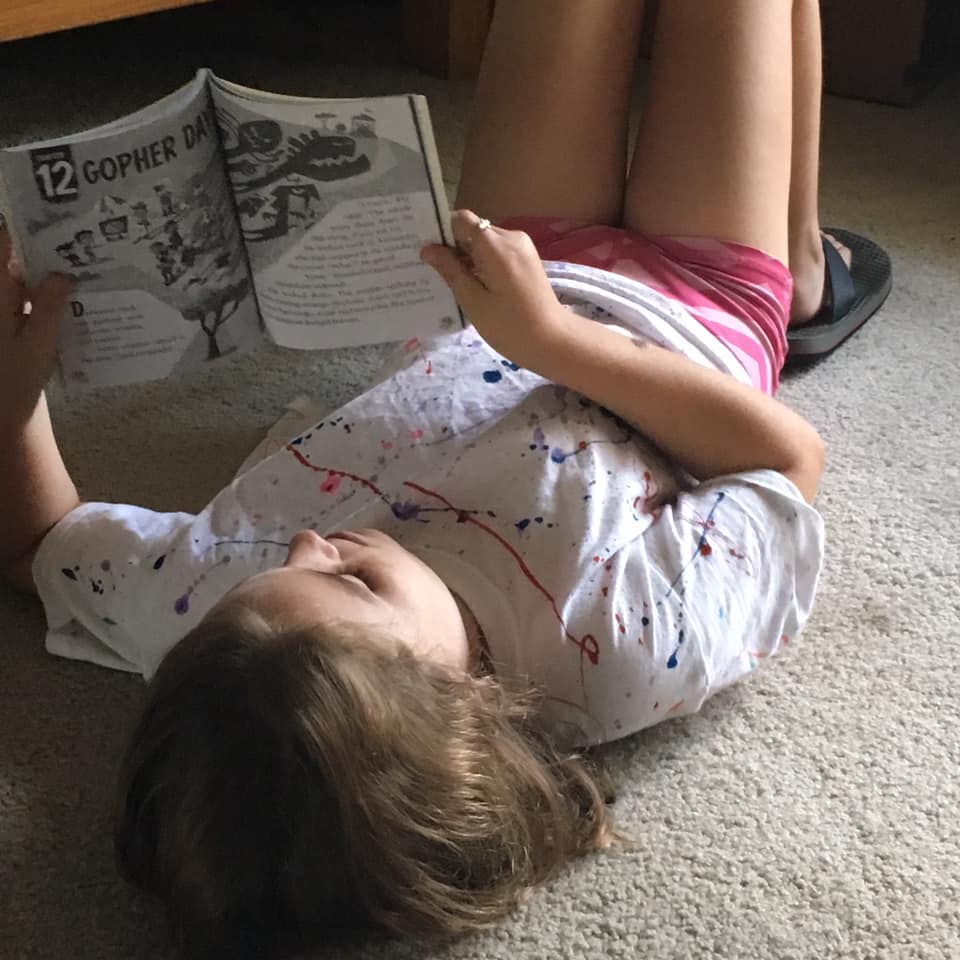
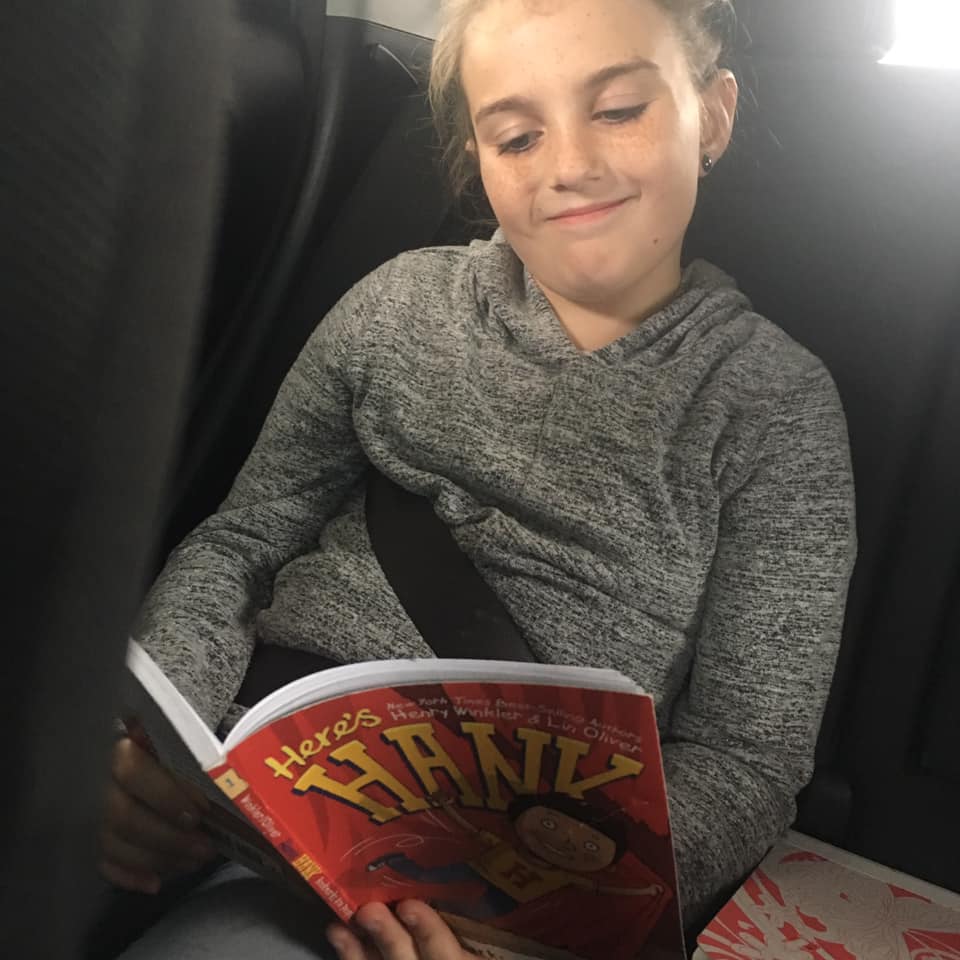
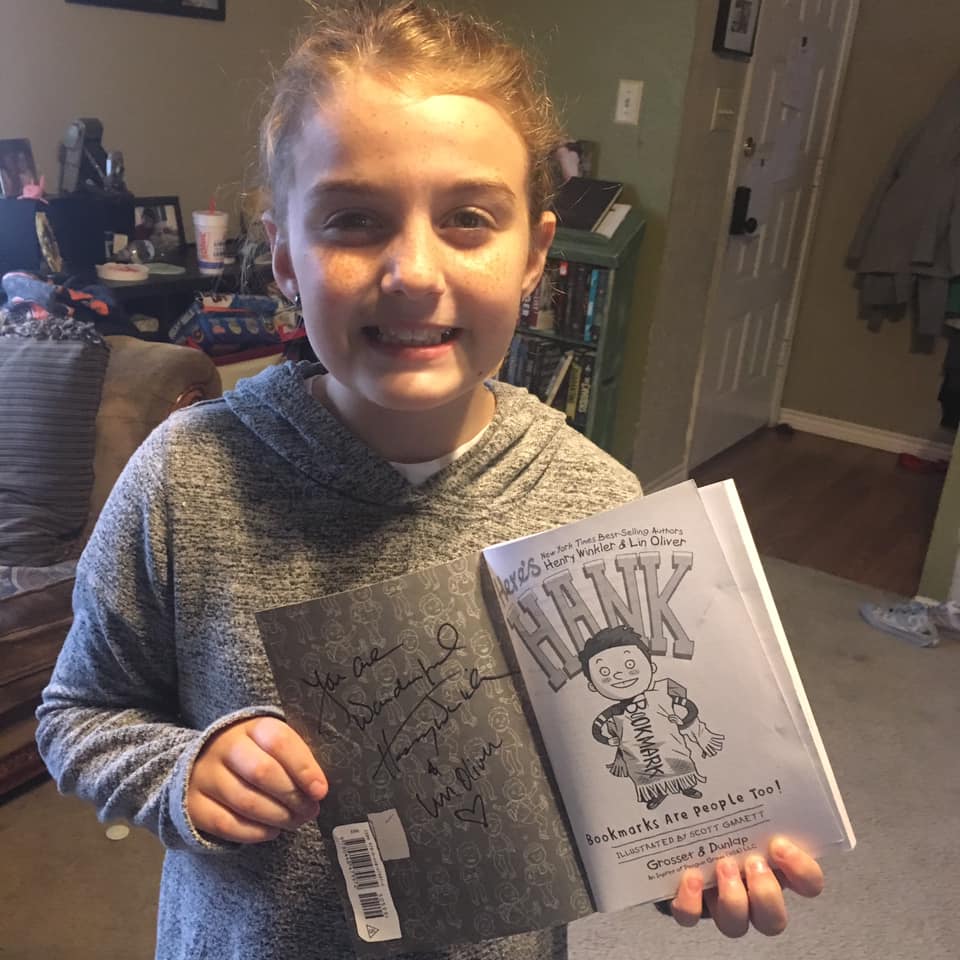

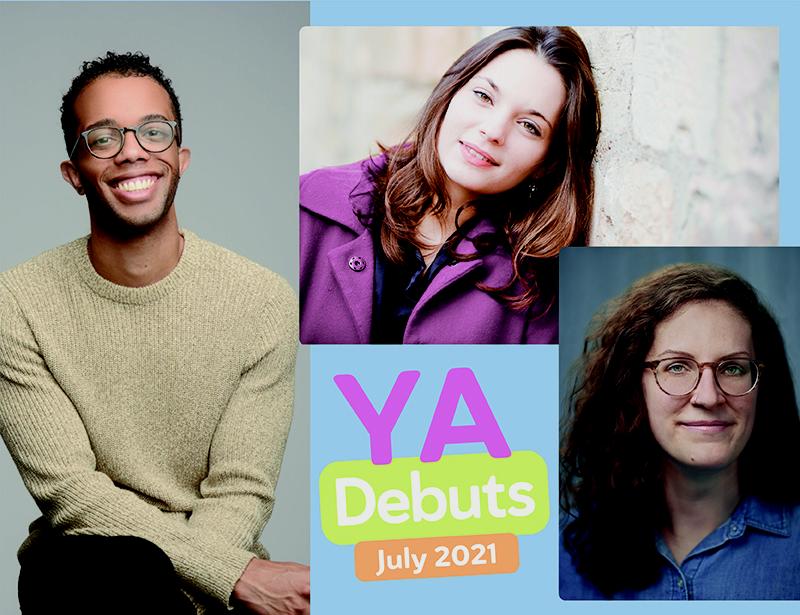

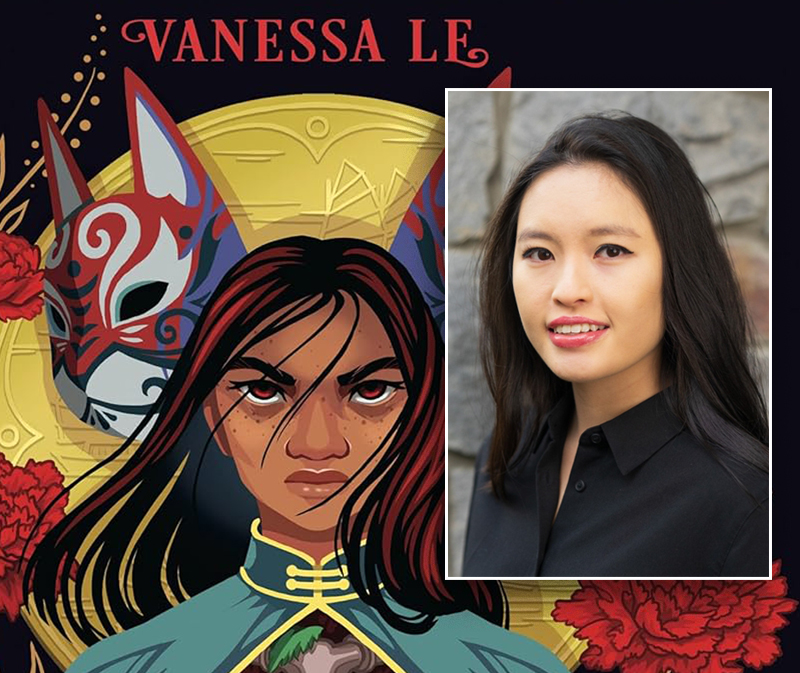
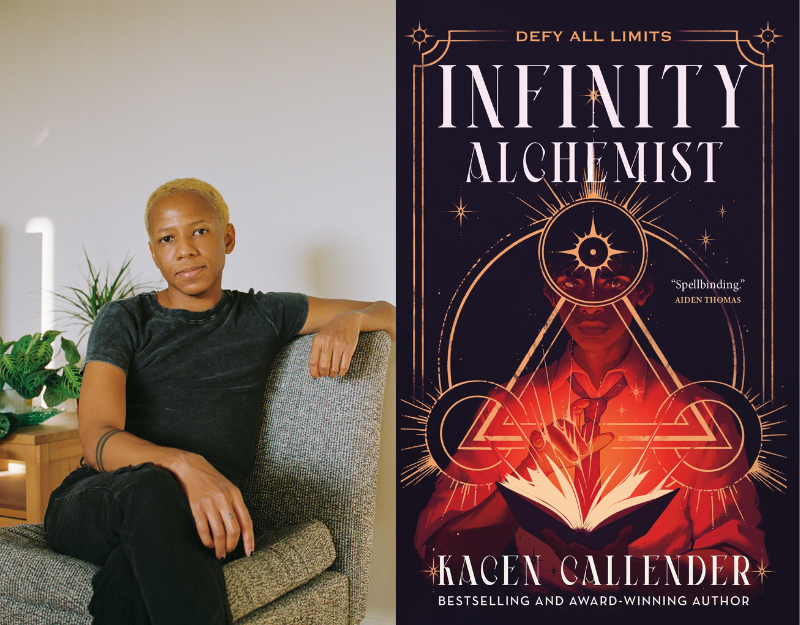
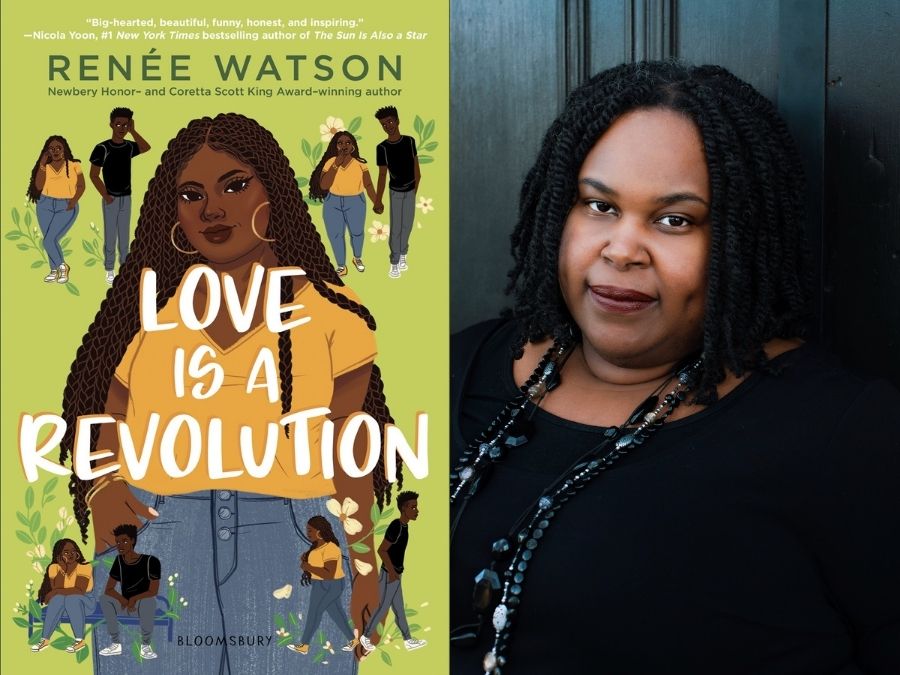
Karen, you are a fantastic parent the way you work to understand and advocate for your child, and the way you help others understand.
Scout, you are awesome! Thank you for being open about your experience with dyslexia; that will help others. I am so sorry you were bullied; you never should have been. (I was, too, as a chikd and teen.) But I see your strength and courage, your intelligence and your enthusiasm. I am so glad you’ve found some books you love, some supportive people, and things are better at school. I love graphic novels, too. I hope you always believe in yourself. You’re doing beautifully.
You go, Scout! You and your mom are both wonderful.
I have a dyslexic cousin. He’s almost 60 now, and when he was young nobody knew much about dyslexia. I’m 8 years older than he is and I remember his struggles with reading and his tears over being thought stupid. But we all knew he wasn’t stupid at all…he’s very bright.
His parents fought for him, the way your mom is fighting for you. His mom got involved with what was then the Orton Dyslexia Society and the entire extended family participated in a big study on reading that Johns Hopkins ran. My cousin is, of course, still dyslexic, but he’s now a big reader, loves books, and has been very successful in his career.